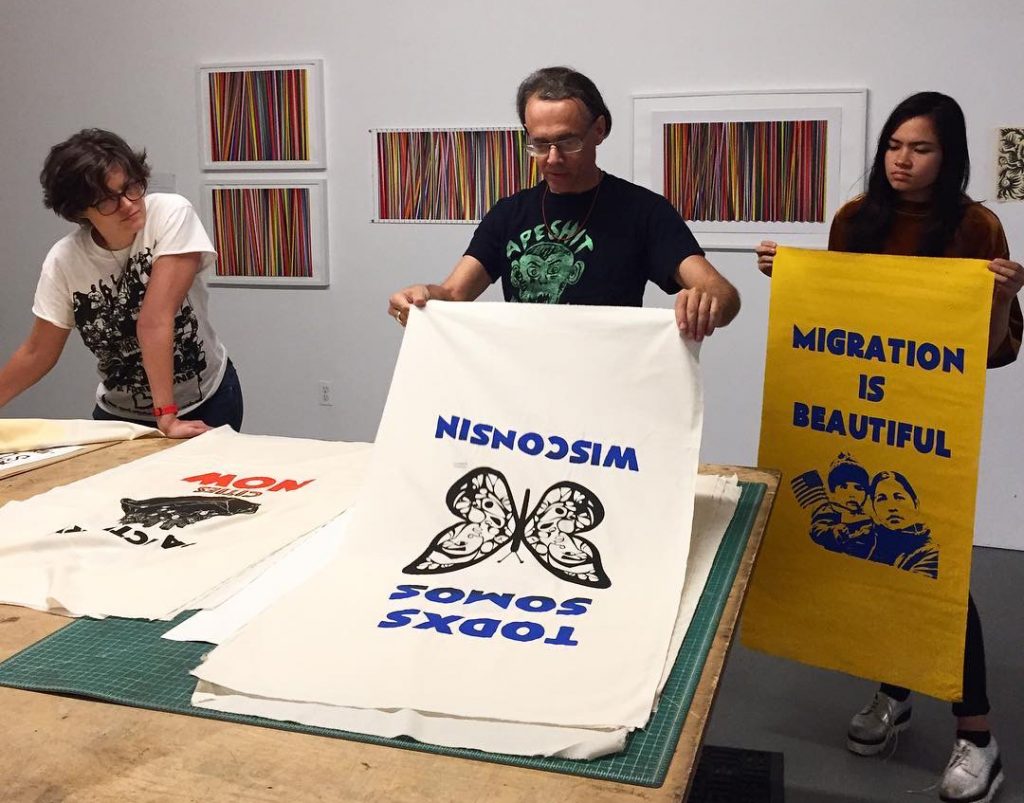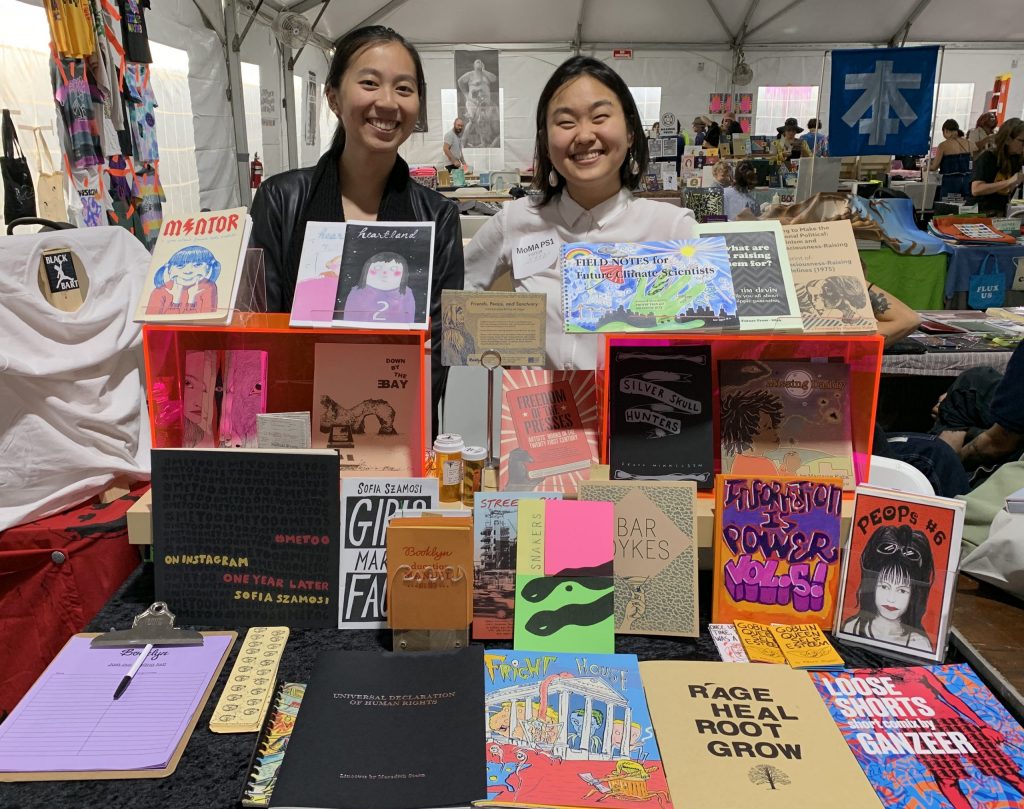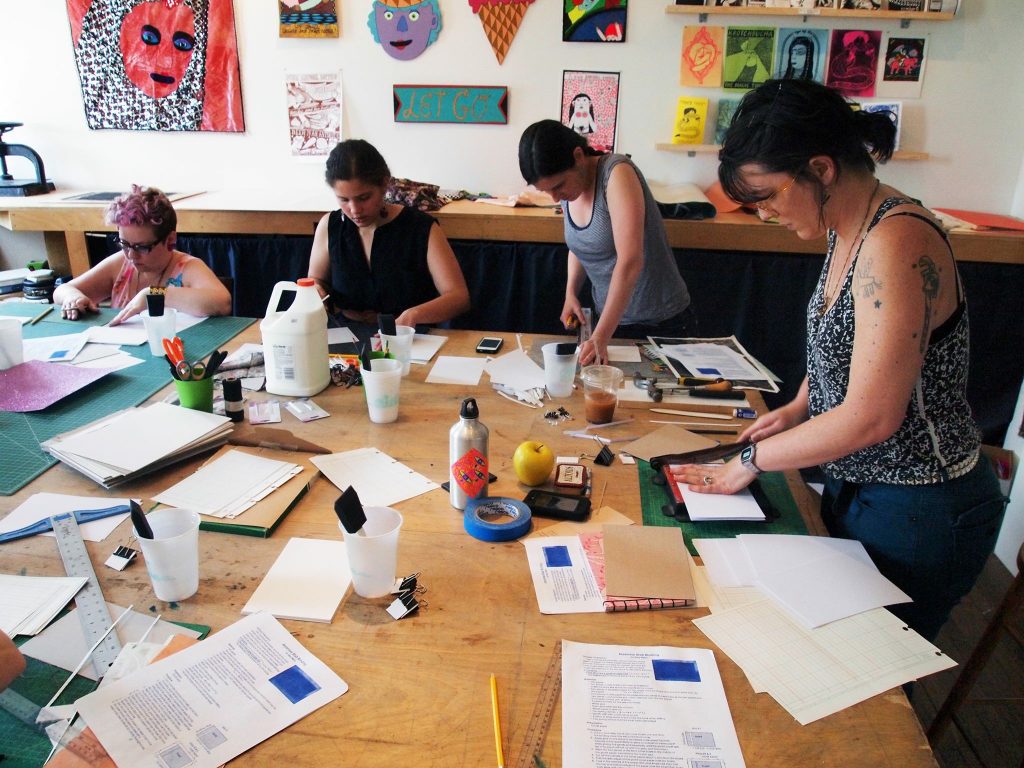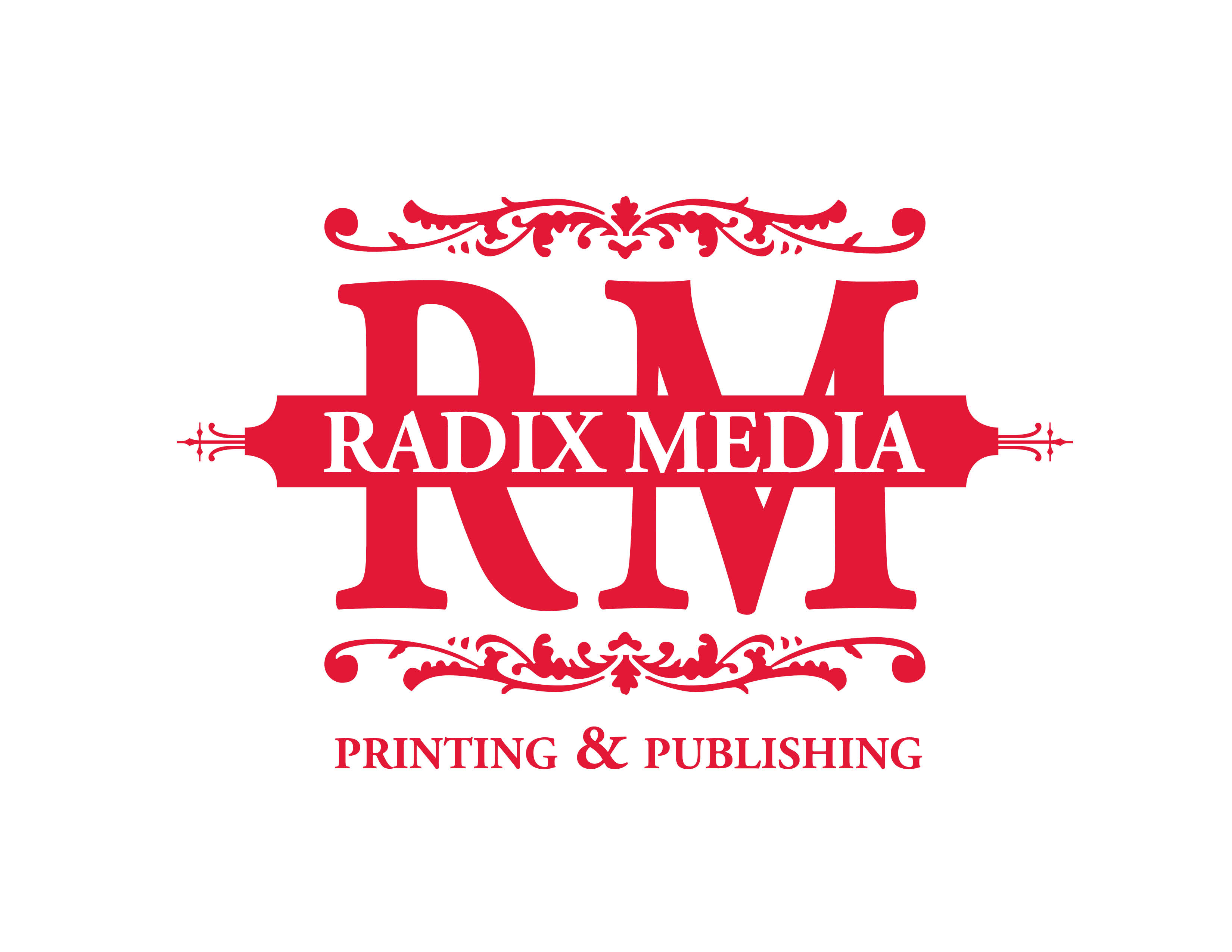ooklyn is a non-profit organization whose mission is “to promote artists’ books as art and research material and to assist artists and organizations in documenting, exhibiting, and distributing their artwork and archives.” Their commitment to social justice is reflected in their work, and those values align with Radix Media’s.
I spoke to executive director Monica Johnson about the role printed ephemera plays in building a better world, the books they’ve published, and the work they’ve done during the COVID-19 pandemic.
How did Booklyn begin, and why has the focus been on artist books?
 Booklyn started in 1999 as a group of politically-radical, punk, post-grad artists who moved from Madison, Wisconsin to NYC only to find that the Art world didn’t care much for artists’ books. So they rented a cheap space in Greenpoint, and the rest is history. Kurt Allerslev, our board president was one of those punks. So was Marshall Weber, who is our Directing Curator.
Booklyn started in 1999 as a group of politically-radical, punk, post-grad artists who moved from Madison, Wisconsin to NYC only to find that the Art world didn’t care much for artists’ books. So they rented a cheap space in Greenpoint, and the rest is history. Kurt Allerslev, our board president was one of those punks. So was Marshall Weber, who is our Directing Curator.
I really like that our focus is on artists’ books, in part because it pulls us out of the binary of “art” and “books.” Art objects can communicate ideas and narratives as much as books. Just as books can be beautiful art objects. You can build an argument with art, but because of the dominant manner of its distribution and presentation you don’t get to understand what that is without cultural gatekeepers.
With an artists’ book, you get a whole other medium of artistry and communication. Because of the act of page-turning in general, there is a sequential basis for looking at the art. And that’s narrative in some form because we’re wired to understand and process information in sequence. So the artist book medium is really extraordinary as a form of communication and expression. And arguably, the maker has more agency in crafting the narrative of their own work.
What’s the process like for working with someone? For example, an artist makes either a single print or a portfolio’s worth of work. How does Booklyn get involved and what happens after that?
It’s a pretty organic process, and there are a few narratives that describe how it happens. The first thing is that we are a small, overcommitted group of folks—artist activist types—so that’s to say we know there is a more streamlined version of operating that would make better sense in some efficient, capitalist, one-size-fits-all way.
We are all artists and very involved in activist work in various ways, so we learn about work most often through those pipelines as opposed to a more formalized process. That said, we recognize that we need to incorporate that as a portal of access, too, so look for that soon.
We meet people at art book fairs sometimes, we receive email inquiries, or we find work in the world or on Instagram, and we just start the conversation there. The thing we are primarily concerned with is whether and how the work can serve as a form of education in itself and serve the education market. Can it be considered primary research material in some capacity? And then, we connect what we understand of the work with what we know about our clients, what kinds of collections and institutions we serve, what subjects and formats are popular on our web store.
Of course, it’s not just a matter of delivering what the known demand is. It’s about advocating for the education and research value of work that is under-recognized or marginalized in whatever way. That’s the part we are all very motivated by.
“With an artists’ book, you get a whole other medium of artistry and communication. Because of the act of page-turning in general, there is a sequential basis for looking at the art. And that’s narrative in some form because we’re wired to understand and process information in sequence. So the artist book medium is really extraordinary as a form of communication and expression.”
 The artists you work with—such as Josh MacPhee, Erik Ruin, and others—are well known for their political printmaking and graphics. For you, what role does politics play in the creation of artist books?
The artists you work with—such as Josh MacPhee, Erik Ruin, and others—are well known for their political printmaking and graphics. For you, what role does politics play in the creation of artist books?
Politics is in everything we do. It largely depends on our willingness to engage with those dimensions that define who we are. So my answer: politics has everything to do with artists’ books.
We approach everything with a lot of political and intersectional thinking. We consider who made the book, and think about how they choose to situate themselves within or outside of the work. Why they made the book, what stake they have in the subject matter. Are they making this “in response” to the subject matter, or from within a particular community or movement? What are the subjects? What are the materials? How do all of these aspects come together to help us understand its value within an educational system, fraught with another dimension of historical politics? We consider the impact that all of these things have on us as individuals engaging with the work, and speculate on what impact it might have on curriculum. And history. And from within an institutional collection that will preserve this piece in the future. So much!
What sorts of workshops and programming does Booklyn put on?
Not much nowadays, obviously [due to COVID-19]. But when we were in full swing we offered workshops in bookmaking and binding techniques, which we do onsite in Sunset Park or we travel to classrooms. We host two annual fairs: AB/Z Fair and Sass & Zines Fair. And we curate 4-5 exhibitions year round that feature local and international artists who focus on handmade and print-based works on paper that address urgent, socially-driven topics.
I was really excited to bring children’s books into Booklyn’s culture by organizing the Lil’ Radicals exhibition. And you guys, of course, had your Be the Change! coloring book on display for that. My absolute favorite event to come out of that exhibition was “How to Talk with Children About Incarceration Using Books” with Mariame Kaba, who wrote an amazing children’s book, Missing Daddy.
It’s hard to imagine how all of this might transition to virtual platforms, or whether it even should. Right now we are just doing a lot of listening to see if what we offer in terms of programming is really even needed. If not, and if other folks are already serving our community, then great! In that way we want to be in solidarity—not in competition—with other organizations. And in another way, it just helps us understand our real value as an organization. I think that’s a hard and scary thing to question right now, but because we are a very small organization and are very transparent with each other we can move through these questions more easily.
“We approach everything with a lot of political and intersectional thinking. We consider who made the book, and think about how they choose to situate themselves within or outside of the work. Why they made the book, what stake they have in the subject matter.”
 Tell me about your publishing imprint. What makes Booklyn step in as a publisher versus a distributor who’s shopping the work to archives and academic institutions?
Tell me about your publishing imprint. What makes Booklyn step in as a publisher versus a distributor who’s shopping the work to archives and academic institutions?
Our publishing has always been project-based, and sometimes depends on state or local grant funding. We have a two-decade history of collaborative publishing of artists’ books, portfolios and box sets of prints, artists’ publications and other ephemera from activist artists and social justice organizations. We’ve co-published projects with Occuprint of Occupy Wall Street, Justseeds, Iraq Veterans Against the War (About Face), Librarians and Archivists for Palestine, Miriam Kaba, the Poor People’s Campaign, Seth Tobocman, Meredith Stern, Cuba, and many others. Booklyn also publishes and co-published trade books and catalogs focusing on the culture of artists books such as Streetopia with Ericka Lyle, Diamond Leaves Catalog with Xu Bing, and the seminal book on activism and artists publications, Freedom of the Presses.
We exist in a new world now, one shaped by the COVID-19 pandemic. How has the work at Booklyn continued as people have had to work from home, and adapt to a new way of life?
As a consensus-driven organization I don’t feel that I need to speak for other people, but from what we’ve expressed with each other and from what I’ve observed the mechanics of working from home has been pretty okay. We recognize that this is in part a condition of having a very small staff, and also that our domestic spaces accommodated the shift. We appreciate that for some types of our work it is a real efficiency in working from home. I think we’ve become more flexible, supportive, and generous with each other in general. I don’t mean to simplify that it has been incredibly difficult, but that’s harder to talk about because it takes so much energy to go there.
Overall, we are just trying to continue to do what we do best, and that would be a loss if we stopped doing it. It’s been an interesting time for sure. It has brought us into alignment with our values and goals in a way that I’m sure will support the next critical steps.
What’s next for the organization? Tell me about any exciting new projects you have going on.
We initiated a “Pay What You Want” section of our web shop recently as a way to increase accessibility to our work and to help fundraise. We’ve gotten a great response so far, so that’s been encouraging! Our curated care packages are also something we’ve been really feeling good about, too.
Our curators—Jan Descartes, Beldan Sezen, and Marshall Weber—started the Booklyn Bulletin, a newsletter for education institutions that spotlight artists’ books, zine collections, and archival collections. This has been a really fantastic way to stay connected with our clients while we cannot travel to see them directly.
But I think the “project” we are most energized about is surviving as an organization so that we can participate and contribute to a new era of radical, intersectional, equitable, justice-centered work. We’re all in on that.
How can people support Booklyn?
Thank you for asking that! There are several ways:
- Join the Booklyn Zine Club and get regular installments of zines by mail.
- Check out our web shop.
- Donate or become a monthly sustainer.
- Stay connected with us by joining our mailing list or following us on Instagram.
Community Spotlight is a blog series that seeks to connect people and build power. Each post will feature a person or organization doing great work in their community and fighting for a more just world. We interview writers, illustrators, podcasters, filmmakers, activists, and more. Subscribe today and let’s start building together.




